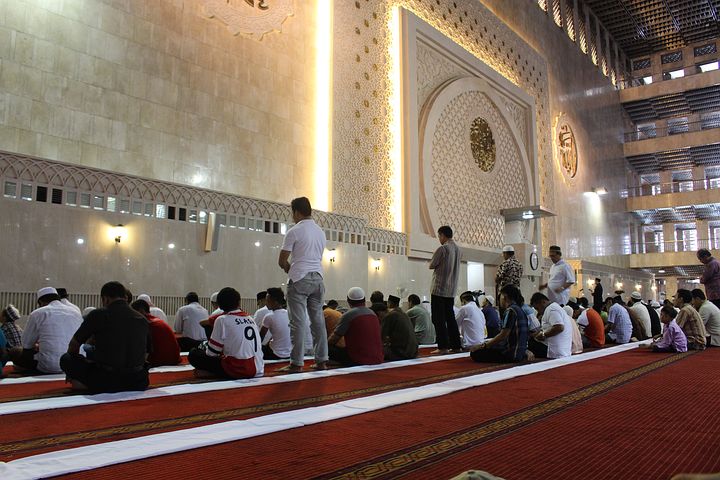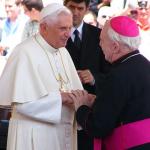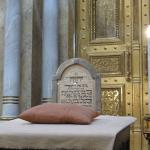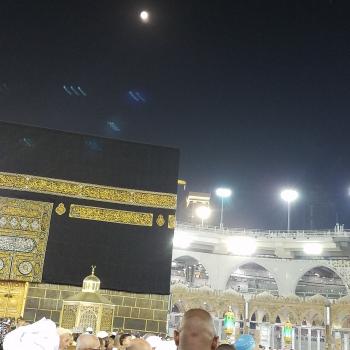 A common myth is that the Salat was ordained for the followers of Prophet Muhammad only. A review of Abrahamic Scriptures and other religious literature would reveal that it predates Prophet Muhammad’s time and was also ordained for Jews and Christians.
A common myth is that the Salat was ordained for the followers of Prophet Muhammad only. A review of Abrahamic Scriptures and other religious literature would reveal that it predates Prophet Muhammad’s time and was also ordained for Jews and Christians.
Salat is the ritual prayer that is obligatory for all Muslims. It is more than “the prayers” as might be perceived by the English translation. It follows a prescribed pattern and recitation of specific verses and supplications in a particular sequence. It is often interchangeably written and pronounced as Salah. There are five mandatory prayers each day from dawn to late evening. In addition, Muslims also offer the prayers on Friday in congregation and on the occasion of two festivals: Eid al-Fitr (after Ramadan) and Eid al-Ad’ha (after Hajj). The congregational prayers on Friday are emphasized in the following verse:
O you who believe! when the call is made for prayer on Friday, then hasten to the remembrance of Allah and leave off trading; that is better for you, if you know. 62:9
The prayers can be done in private (individually) at home and work but are more highly recommended to be offered in a congregation in a mosque (masjid). Before one starts the prayers, one must cleanse with water by performing ablution (wadu). Many consider this a spiritual rather than physical cleansing. Each prayer is announced with a call to prayer, known as adhan.
More than just a set of ritualistic verses or postures, it is considered a way to purify one’s soul and attain spiritual health by seeking nearness to God by worshipping Him and remembering Him often. The daily prayers are constant reminders of one’s duty to God and are intended to prevent one from getting perverted or deviate from the right path. One must be entirely devoted and maintain the entire focus on remembrance of God during salat, and not merely fulfill the mechanical requirements. Salat can be viewed as a means for a person communicating with God, whereas the recitation of the Qur’an can be considered God talking to the person, completing a two-way communication. Salat has also been translated as communication (with God).
Recite that which has been revealed to you of the Book and keep up prayer (Salat); surely prayer keeps (one) away from indecency and evil, and certainly the remembrance of Allah is the greatest, and Allah knows what you do. 29:45
Salat is often mentioned in combination with zakat (charity).
And be steadfast in prayer; practice regular charity; and bow down your heads with those who bow down (in worship). 2:43
And be steadfast in prayer and pay the regular charity and whatever good you send before for yourselves, you shall find it with Allah; surely Allah sees what you do. 2:110
According to the Qur’an, Salat Was Also Ordained on Abraham, Moses, Jesus, and Other Prophets
Non-Muslims and many Muslims erroneously believe the Salah was ordained on Muhammad and subsequently on his followers only. But the Qur’an indicates it was ordained on other prophets as well:
And We bestowed on him [meaning Abraham], Isaac, and, as an additional gift, (a grandson), Jacob, and We made righteous men of every one (of them). And We made them leaders, [or Imams] guiding (men) by Our Command, and We sent them inspiration to do good deeds, to establish regular prayers [salat], and to practice regular charity [zakat]; and they constantly served Us (and Us only). 21:72–73
And mention Ishmael in the Book; surely he was truthful in (his) promise, and he was a messenger, a prophet. And he enjoined on his family prayer and almsgiving [zakat], and was one in whom his Lord was well pleased. 19:54–55 (Shakir)
Salat and Zakat were ordained on the children of Israel:
And remember We took a covenant from the children of Israel (to this effect): Worship none but Allah; treat with kindness your parents and kindred, and orphans and those in need; speak fair to the people; be steadfast in prayer [salat]; and practice regular charity [zakat]. 2:83
Similar passages are repeated when recalling prophets prior to Muhammad and their communities: on the children of Israel (2:43, 2:83); on Sho’aib, a prophet in Midian, often said to be described by Muslims as Jethro of the Hebrew Bible (11:87).
On Moses
And I have chosen you [referring to Moses], so listen to what is revealed. Verily, I am Allah: There is no god but I: So serve you Me (only), and establish regular prayer for celebrating My praise. 20:13–14
On Jesus
He said [referring to Jesus’ testimony from the cri]: Surely I am a servant of Allah; He has given me the Book and made me a prophet. And He has made me blessed wherever I may be, and He has enjoined on me prayer [Salah] and poor-rate [Zakah] so long as I live. 19:30–31
Next page: Biblical references to salat/daily prayers















